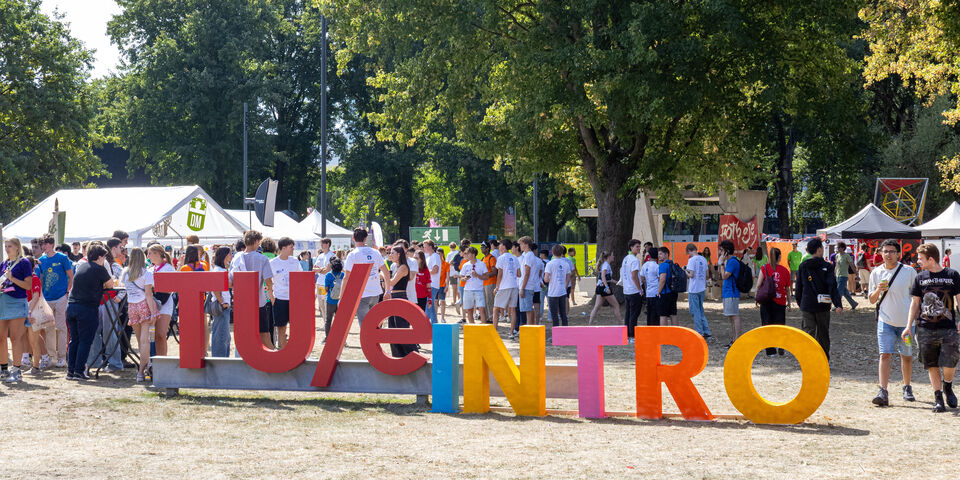Peer support gets few reports: “Intro vibe is easy-going”
Sofie van Stam has a calm intro, which is good news. The TU/e student is one of the confidential advisors for students, operating under the title CPS. “We have only received a few reports, which is less than in previous years. The overall atmosphere is very good.”
Social safety has a solid position within the organization of the Intro. First of all, during the joint preparations on Saturday, the Intro moms and dads are presented with a program based on the subject, this year under the heading “Be aware of your own bias.” Sofie van Stam believes that Intro parents are becoming increasingly aware of social safety and cultural awareness. “We received very positive feedback, more enthusiastic than in previous years.”
On Monday, presentations are given at all study associations, letting all Intro participants know that there are fellow students who want to listen to their story. Peer supporters will be present in Atlas 0.520 throughout the week. On the table there is a list with names and numbers.
Van Stam: “Our main job is to listen. We do not provide concrete assistance, but we do have a very good understanding of the care landscape within and outside TU/e, hence the list. We do tell students who they can turn to with their specific problem and, if necessary, help them to make contact.”
Sharing concerns with a fellow student
CPS is short for Confidential Peer Support. “It is more comfortable for students to talk to a fellow student when something is wrong. The step to, for example, an academic advisor or student psychologist often proves too big”, Sofie van Stam says. When she, a student at Built Environment, was a board member of the CHEOPS study association, she noticed that there was no confidential advisor there.
She discussed the omission with student diversity and wellbeing officer Lara Hofstra, and they decided to address the issue. Now, there's a training program for active students who want to be a confidential advisor within their association. In addition, there is a steady group of CPS members who operate university-wide: any TU/e student who is struggling with something can turn to one of them for help.
Although the Intro has not yet ended at the time of the interview, Van Stam is already expressing cautious optimism: “We have only received a few reports, which is less than in previous years. Which, however, does not mean that unpleasant things cannot have happened, because not everyone will come to us. The overall atmosphere is very good though.”
Scams
If she has to mention one setback, it is the stories that reach her about the excesses of the room shortage. Internationals in particular are getting caught up in this and might be more vulnerable to scams. “Sometimes a student agrees to pay way too much monthly rent. Or it turns out that after paying the deposit, the room doesn't even exist.”
What would Van Stam advise students who are still house hunting? What to do when you come across a housing opportunity that seems too good to be true? “Always check with a local, such as your Intro parent, to make sure the offer is realistic.”
Alcohol
Why would the number of reports during the Intro be lower this year? Alcohol is a factor, Van Stam believes. “There are more and more students who don't drink. Because Introgoers can now also opt for the alternative program of the Tangent Track, there is less pressure to party and drink alcohol, potentially in excess.” She believes that incidents such as assaults will occur less frequently as a result. And that it generally improves the atmosphere: “I think the Intro vibe is very easy-going.”
This article was translated using AI-assisted tools and reviewed by an editor.



Discussion